Rising Lords’ medieval strategy is fun and beautiful, but mechanically unpolished
As regular readers will know, I’m always the first to put my hand up to review strategy games that make their way onto my console. The latest of these is Rising Lords — a game that feels every bit as though it is still only halfway through optimisation for gamepad and “softer” console audiences. Despite a few flaws, there’s something in Rising Lords that kept me pushing through.
Picture the scene — I’d been playing Rising Lords for about ten hours over a few days, yet in terms of actual progress through the campaign, I was probably only an hour or two in. That’s because Rising Lords is so punishingly opaque and difficult that I considered quitting several times. This board game-inspired grand strategy game is savage, and if you like strategy games, you’re going to love it — or hate it.
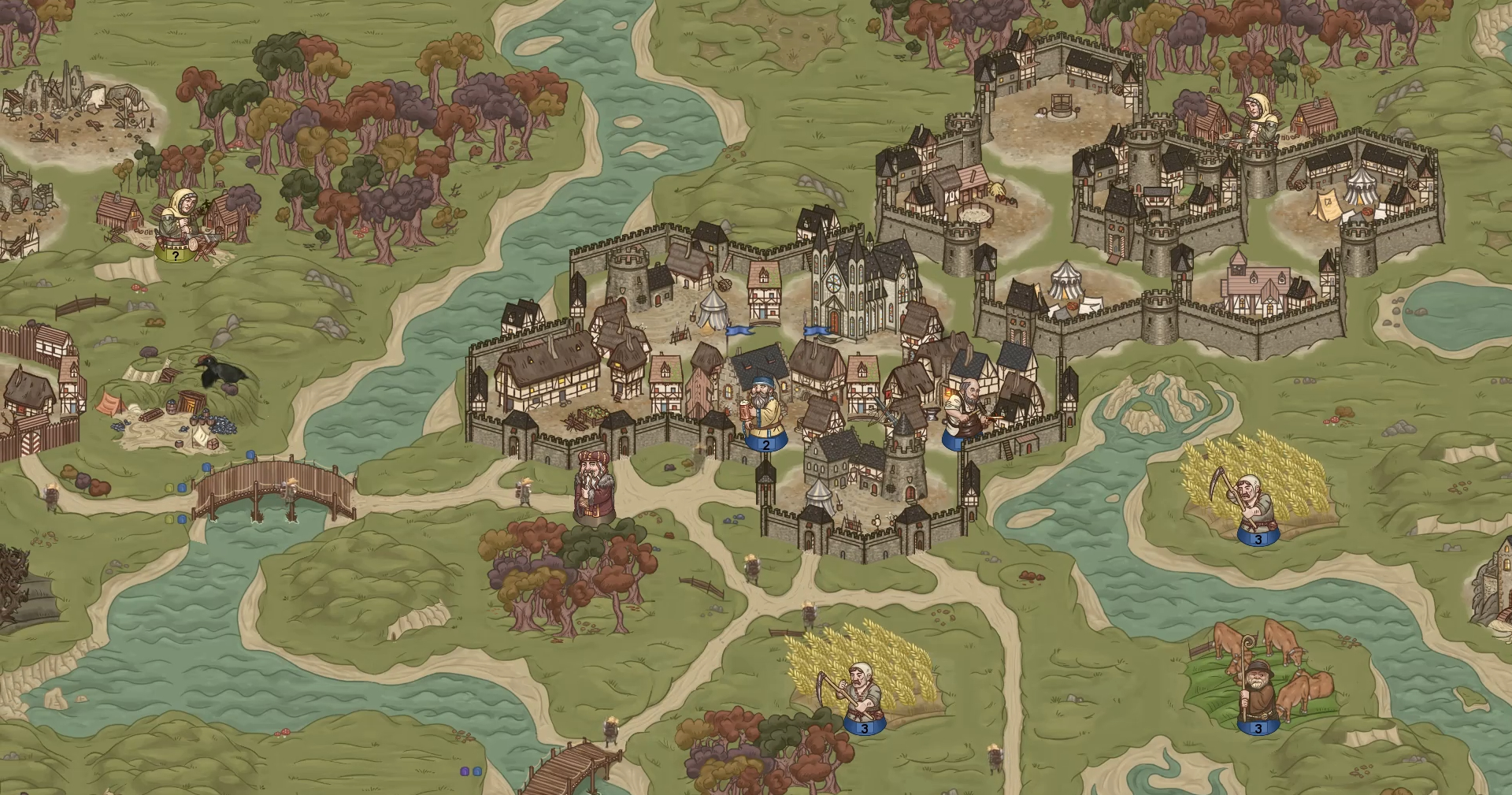
Rising Lords features cute graphics that present us with a mediaeval world in which we rule a single duchy or region. Our peasants work the fields, mines, lumber mills and smithy, or if happiness falls, we can send them to relax in the inn. So far, so standard really — with perhaps the only unusual thing being that food is very seasonal, making for an occasionally interesting resource management puzzle.
The problems begin with the interface, which is very clearly designed for a mouse and seems slightly reluctant when prodded at with an Xbox controller. The cursor moves slowly and many things on screen are either difficult to click due to their size or shape, or often not explained at all. For example, on battle screens (which I realise I have not yet described) units can be right-clicked and put into a defensive posture on PC. On console, this is never explained, and I’d probably lost about fifteen battles before I worked it out on my own.
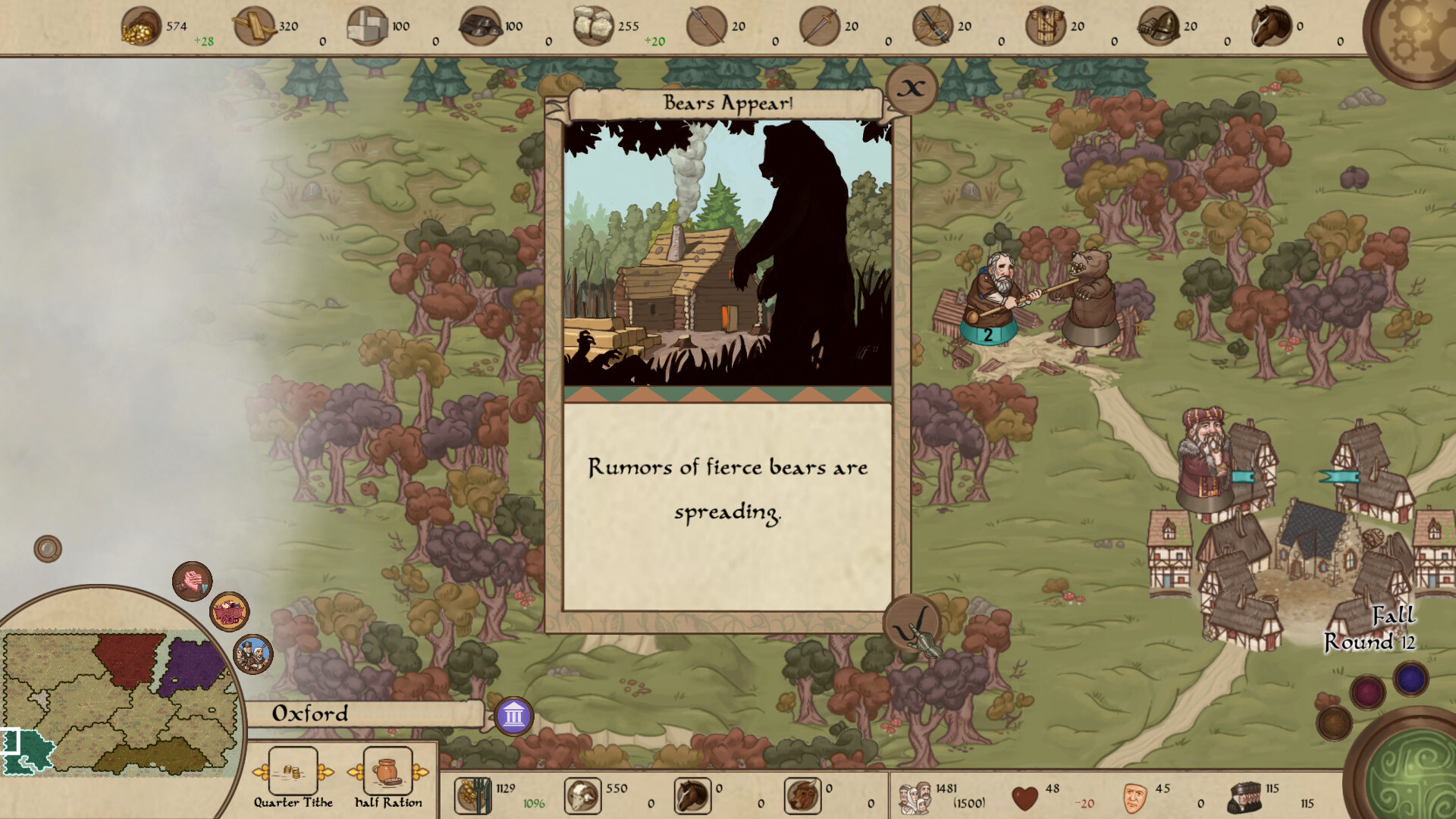
The next issue comes from the difficulty and the feeling that a lack of clarity leads to unfairness. This begins with a very thin tutorial that tells you some basics (but very little else) and leaves the players pretty much to fend for themselves in the campaign. This in turn happens to be a very tough campaign that will quickly have the player immersed in a border war for which the basic objective prompts (make some ranged weapons, for example) offer little guidance.
The game never explains how to get better insight into the units that neighbouring armies might field, and in one relatively early questline, it demands that we capture a castle a few regions away (and must take ladders.) Although we have to do this by a certain turn, we are not told the enemy’s strength, nor are we told that there will be another army on the way there that is probably powerful enough to defeat whatever army we field unless we happen to manage our preceding turns flawlessly.
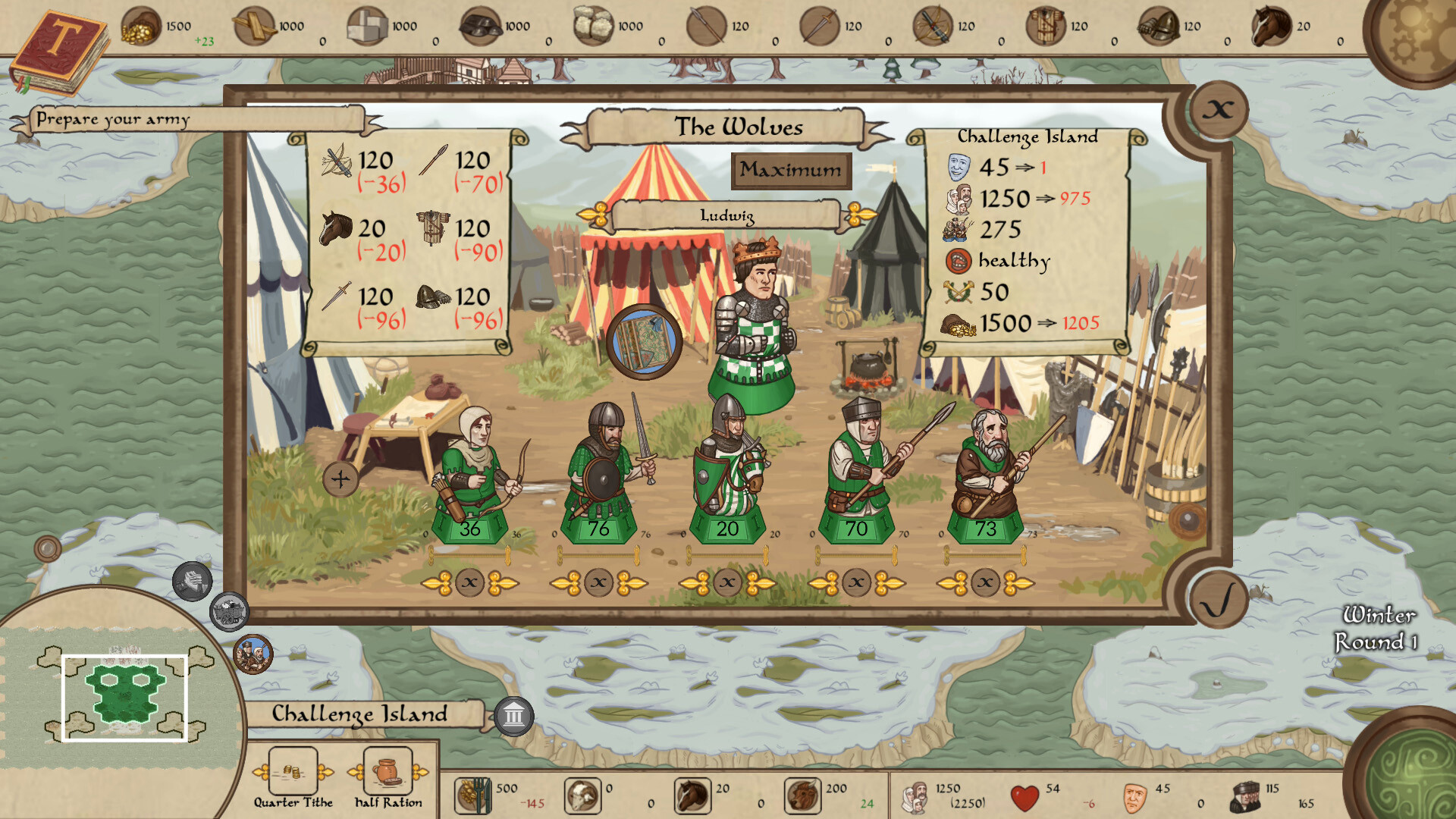
Indeed, there’s no respite in Rising Lords. One crisis leads very quickly to another, with very minimal resources available, very few turns to get used to anything and absolutely no room to step outside the script. In the first ten hours or so that I referred to above, I made the mistake of trying to build an irrelevant building (a church) early on, and saved after doing so. Resources in Rising Lords are so tight that even ten or so turns after building the church, I was still reeling from not having those same resources available to build bows, spears or whatever.
- Love the art-style and setting, but feeling a little mercenary? Our Battle Brothers Xbox review highlights it as one of the best of the squad-based strategy gaming bunch.
I guess my point here is that if I don’t have the freedom to do what I want (with any real chance of success) and am expected to be railroaded towards a certain sequence of events, then please at least show me where the train station is. But it’s not all bad in Rising Lords — so let me tell you about some of the better stuff.
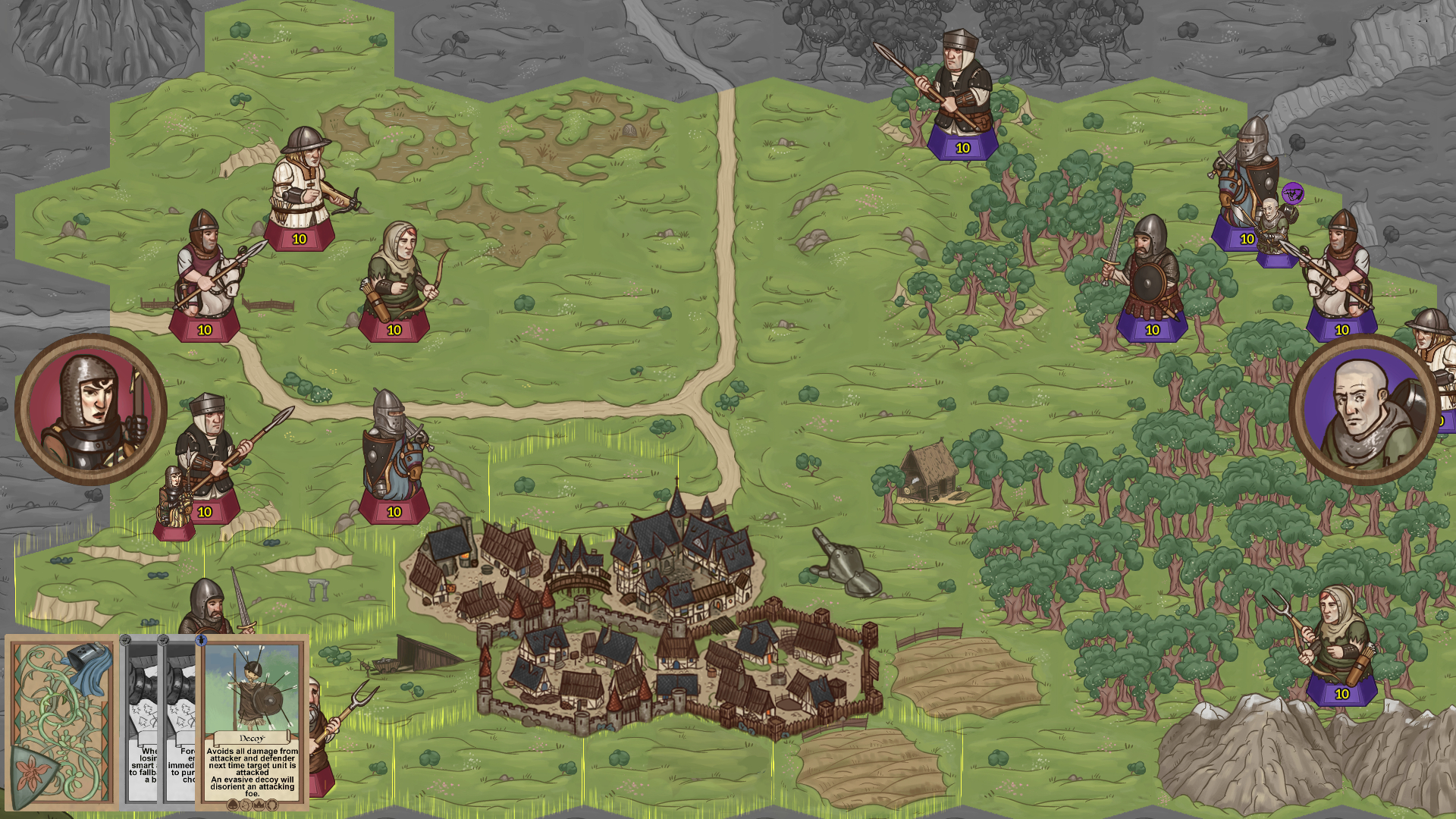
Firstly, this really is a great-looking game, with a strong board game aesthetic and a pretty clear interface that shows you where everyone is working, what they are doing and what’s going to change when you click the “end turn” button. The low-fantasy mediaeval setting, the cute characters and the customisable lords all bring character to a world that is already brimming with life — as animals, caravans and different things scuttle along the roads and rivers that make up the backdrop of the game.
I also like the combat — sort of — with the exception of some of the interface issues I’ve already mentioned. Broadly speaking, a stone-scissors-paper mechanic is going on here, with spearmen being good against cavalry, cavalry beating swordsmen or archers and swordsmen beating spears. A card-based system (based on the experience of your commanding officer) allows players to use powerful abilities that augment their units or weaken enemies — and these really can swing the tide of battle.
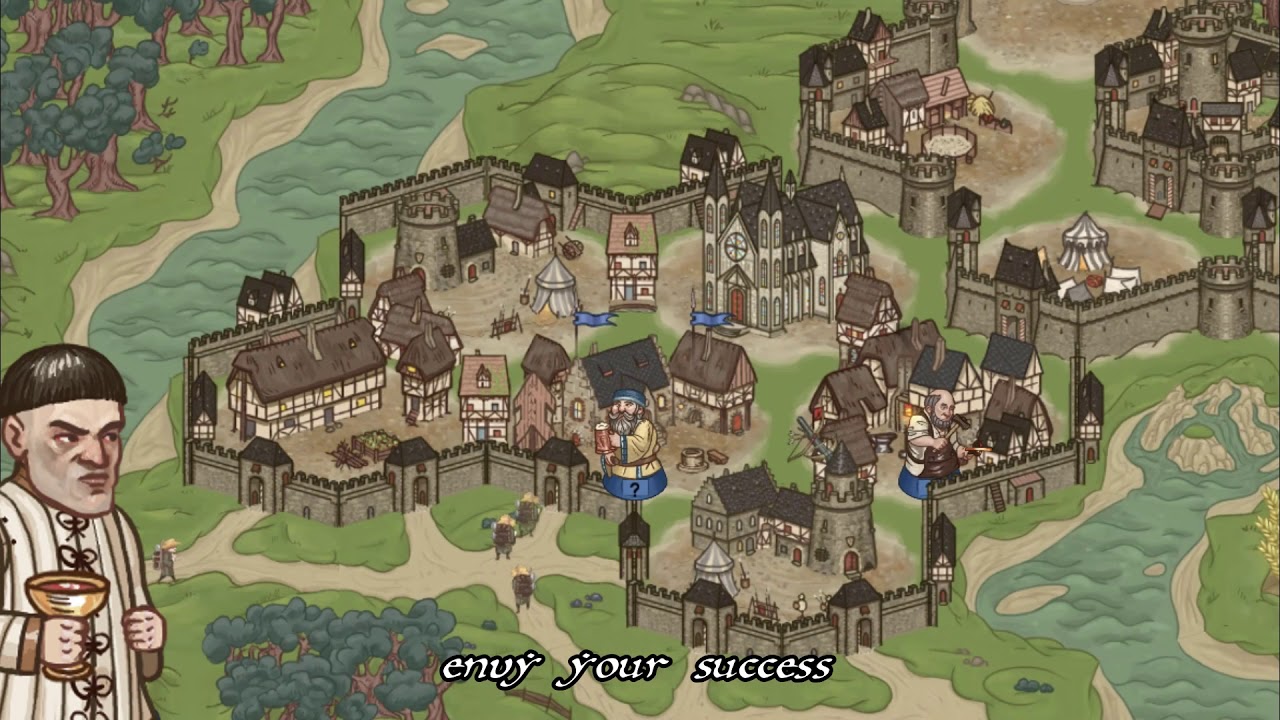
I suspect multiplayer is where Rising Lords might really shine, given that the issues of pacing and difficulty curve that I’ve mentioned will either exist (or not) for all players equally, and there’ll be more scope to build as you see fit — perhaps by adding watchtowers, guard houses and some of the other auxiliary buildings that don’t seem to play a role until much later (if at all) in the solo campaign. Sadly, I haven’t been able to get a game of Rising Lords online yet.
Whilst this probably reads like a fairly damning review, there’s definitely something here in Rising Lords. I am not sure I’ve found it yet, but players who enjoy really tough games and don’t mind restarting their campaign several times might find something quite rewarding here. Either way, I think Rising Lords is a great-looking game that has potential, and I’d like to revisit it in a few months once it’s had a few interface and quality-of-life enhancements.
Rising Lords is available now for PC, Xbox One and Nintendo Switch.
Comments are closed.